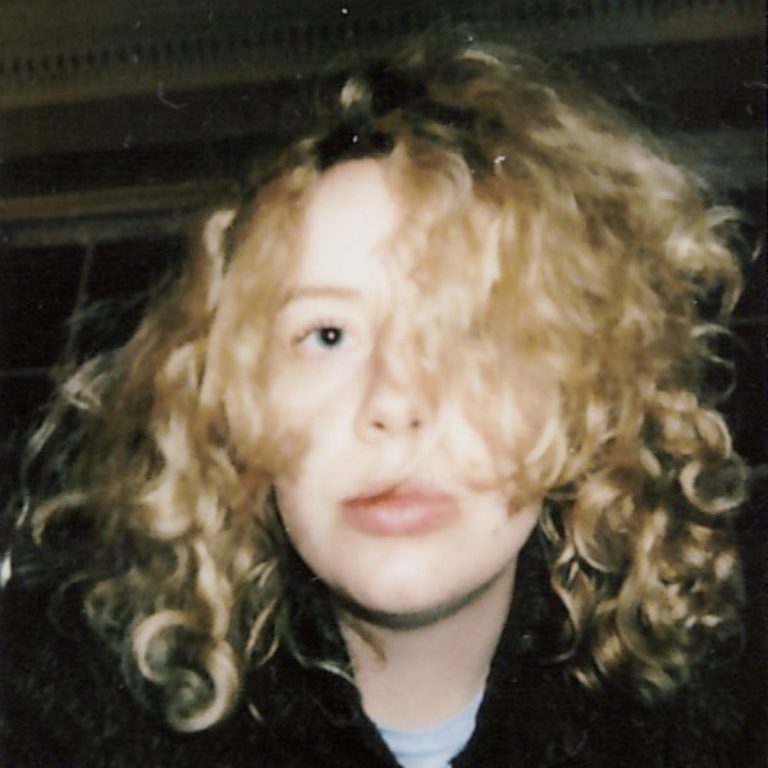Stellar albums and careers are forged via the reconciliation of opposites. Artists tap into integrative possibilities in myriad ways. In turn, memorable songs, albums, and discographies are experienced, and perhaps most fruitfully discussed, in terms of paradoxical dynamics.
Building on her folksy debut EP, 2020’s Covid-era Cubicle, Glasgow-based Lizzie Reid now shares her second EP Mooching. Throughout the five-song sequence, she revels in melancholy diarism, well-curated imagery, and intellectual musings, occurring as viscerally inclined and contemplative. Reid’s melodies are gossamer yet audaciously seductive. Her soundscapes are varyingly hypnotic and anxiety-inducing. In short, Reid has evolved considerably since her first outing, releasing one of the standout EPs of the year, a set that, despite its brief 17-minute playtime, feels complete – stylistically and energetically.
On opener “Love of Her Life”, Reid’s tremulous voice is bolstered by a strummy acoustic guitar. Around the three-minute mark, a catchy riff prompts a thickening of the track: background vocals kick in and the acoustic guitar strum picks up intensity. The atmosphere soon grows murkier and Reid’s voice more languid, the singer longing for her old connection – which could as easily be a drug as a previous lover – even as she strives to embrace “a new beginning.”
“Bible”, meanwhile, has a lilting, swingy vibe; a synthy organ drone is sufficiently in the background to advance the religious theme without collapsing into gimmickry. Both “Love of Her Life” and “Bible” land somewhere between PJ Harvey’s mid-career folk-rock takes and Laura Marling post-I Was an Eagle. In fact, the two tracks (and EP as a whole) can be viewed in terms of a broader continuum that runs from Patti Smith to Cat Power to Midwife, among others. And yet, the space that Reid claims is surprisingly her own; despite its obvious references, Mooching is notably distinct.
On “Soda Pop Stream,” Reid assumes the roles of steamy pop singer and jazzy chanteuse with seamless proficiency, burdened yet oddly buoyant. Lyrically, the piece unspools like a trippy video clip of a couple sitting in a restaurant. The singer watches her companion “rotate around some words” while she “mops the floor with her hands.” When Reid concludes “Please don’t freak out on me,” one has the sense that the experience has regressed into a PTSD-inflected psychodrama, though Reid resists overamping the dissonance, instead employing vocal and atmospheric restraint. The result is a more pointed tension: the listener becomes a voyeur observing the messy dissolution of a relationship. The track concludes with a wiry guitar solo that would get a thumbs-up from Marissa Paternoster.
On “How Do I Show My Love?”, Reid is accompanied by a minimalist piano part. Her vocal, however, is complexly delivered, brimming with confidence and vulnerability, sorrow and acceptance, a hint of hedonism and a trace of anhedonia. With “Warpaint”, Reid relates seeing an old flame and reacting in a way that she didn’t anticipate (she wasn’t as done with the affair as she thought). Her voice is draped over a thumping bass part and welter of guitars and drums, the raspy textures bringing to mind Florist’s recent eponymous LP. And yet, Reid clearly individuates, exuding a signature flare.
Consciously and/or unconsciously, Reid stirs the archetypal energies of The Ecstatic Dancer, The Griever, and The Romantic. Exuberance, heartache, and an affinity for beauty complement, offset, and balance one another, yielding irresistible gestalts. Mooching would make the ancients proud.

